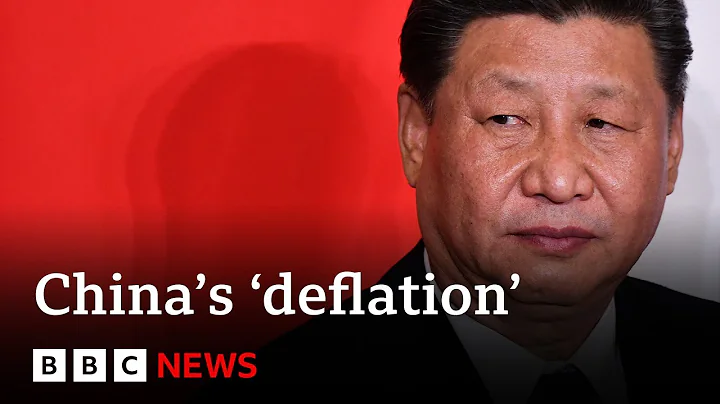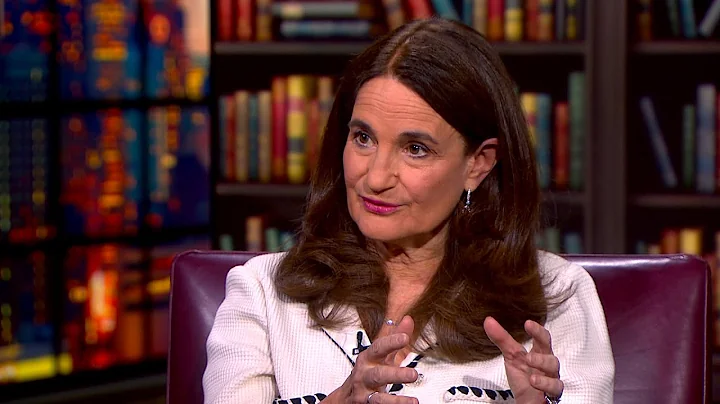In recent times, Taiwan has made frequent moves in order to speed up its economic, trade and industrial decoupling from mainland China and further embrace the United States.
Taiwan's economic and foreign affairs departments have recently invited the American Institute in Taiwan and representatives from Japan and Europe in Taiwan to discuss "restructuring the supply chain" in order to "get rid of over-reliance on other countries." Some local media said this was a strong signal of "industrial decoupling" to the mainland.
The United States and Taiwan claim to "restructure the supply chain"
The DPP authorities, who are deliberately advocating "cross-strait decoupling", have recently made small moves. On September 4, the " Reorganization Supply Chain Forum" , co-organized by the American Institute in Taiwan (AIT), the foreign affairs and economic authorities of the Taiwan authorities, and representatives of Japan and Europe in Taiwan, was held in Taipei. Taiwan's "Foreign Minister" Joseph Wu said that restructuring the supply chain is to get rid of over-reliance on other countries.

American Institute in Taiwan (AIT) and Taiwan Foreign Trade Association Source: Global Times
On the same day, the American Institute in Taiwan (AIT) and the Taiwan Foreign Trade Association issued a joint statement, emphasizing that they will strengthen consultation and cooperation on supply chain restructuring and resilience in the future. to ensure supply chain security. This statement is ostensibly in response to the COVID-19 epidemic. In fact, it is mainly in response to the supply chain restructuring proposed by the United States against mainland China.
The author noticed that some media on the island released news that after the US Secretary of Health and Human Services Azar, the public The Progressive Party authorities are actively promoting other U.S. officials to visit Taiwan. Including US Secretary of Commerce Ross, US Under Secretary of State for Economic Affairs Krach and others . It is reported that the Taiwan authorities will establish the so-called U.S.-Taiwan "Economic and Commercial Dialogue" mechanism with the United States and may restart negotiations on the "Trade and Investment Framework Agreement."
In order to embrace the thigh of the United States, Tsai Ing-wen announced not long ago that Taiwan will gradually open up the import of American pigs and American cattle to open the door to Taiwan-US trade negotiations. In addition to benefiting the United States in the economic field, in the military field, the DPP authorities also paid high "protection fees" to the United States in exchange for military equipment.
Can the dream of "disconnecting the mainland" be realized?
For some time, the Democratic Progressive Party authorities have been clamoring to "decouple" from the mainland supply chain, and are also taking steps to "de-China" in action. After amending the "Regulations on Relations between People across the Strait", a series of "killers" were launched against mainland Internet companies.
According to Xinhua News Agency, the economic authorities of the Taiwan region announced on August 18 that Internet audio-visual services (OTT-TV) that act as agents or distributors in mainland China in Taiwan will be included in the list of commercial prohibited items. This measure is obviously aimed at mainland OTT practitioners and is regarded as "banned" by Taiwanese media.
After the ban of iQiyi, the Taiwan authorities have added another example to contain mainland investors. The economic authorities of the Taiwan authorities stated on August 24 that Taobao Taiwan was determined to be mainland-owned and would be fined NT$410,000 and required to divest or make corrections within six months. According to reports, the Taiwan authorities’ “Investment Review Committee” listed the reasons for punishing “Taobao Taiwan”: Alibaba has “substantial control” over Creda’s “Taobao Taiwan”, so “Taobao Taiwan” is considered mainland-owned.
According to media reports in Taiwan, since Taiwan opened up mainland capital to the island in 2009, there have been many restrictions on mainland capital. Therefore, there have been only 1,674 investments by mainland companies in Taiwan, with a total investment of US$2.335 billion, an average of about 160, The total amount is US$220 million.

Tsai Ing-wen at the press conference Source: Taiwan's "Central News Agency"
Judging from various data on cross-strait economic and trade exchanges, the DPP's attempt to create a "decoupling" of the cross-strait economy is impossible to achieve. Shen Yi, a professor at the School of International Relations and Public Affairs at Fudan University, said that ’s actions against mainland Chinese investors have a strong performance nature and are purely a farce staged out of political calculations.
Cross-Strait economic exchanges and cooperation are indeed benefiting compatriots on both sides of the Strait, and have also brought tangible benefits to the majority of Taiwan compatriots. This cannot be erased by anyone. Data show that despite the impact of the epidemic, cross-strait trade volume reached US$134.94 billion from January to July this year, a year-on-year increase of 8.7%, and Taiwan enjoyed a surplus of more than US$70 billion.
The financial affairs department of the Taiwan authorities announced on the 7th that exports to the mainland (including Hong Kong) in August this year were US$14.46 billion, a record high for a single month in history, an increase of US$2.69 billion or 22.9% over the same month last year; the total from January to August Taiwan's exports to the mainland (including Hong Kong) were US$93.88 billion, an increase of US$10.07 billion over the same period last year, an increase of 12.0%, and the export scale hit a new high for the same period in previous years.
In fact, the attitude of Taiwanese companies may be more realistic. According to Taiwanese media Economic Daily, in an interview after today's "Strength and Softness for a Great Future" forum, Tong Zixian, chairman of iPhone foundry Pegatron, said about the "red supply chain" that industry trends are bigger than color choices.
Should mainland China terminate the ECFA agreement?
In the face of the Taiwan authorities' political policy of "relying on the United States and resisting China", they are also economically attempting to decouple from mainland China and move closer to the United States. Many mainland people believe that the cross-strait ECFA agreement should be terminated. On August 27, a reporter asked Ministry of Commerce spokesperson Gao Feng that ECFA will soon be celebrating its 10th anniversary. Will the mainland continue to implement this agreement?
Faced with this question, Gao Feng did not give a positive or negative answer. However, observers believe that whether ECFA will be interrupted depends on whether the DPP authorities continue to provoke the mainland.
Gao Konglian, former vice chairman of the Straits Exchange Foundation and president of the Cross-Strait Economic, Trade and Cultural Exchange Association, said in an interview with China Review News that Tsai Ing-wen’s authorities have blocked iQiyi and Taobao Taiwan. This kind of attack on originally compliant companies also retroactively affects the past. Impacting cross-Strait relations will affect the sustainability of the Cross-Strait Economic Cooperation Framework Agreement (ECFA).
On June 29, 2010, Chen Yunlin, Chairman of the Association for Relations Across the Taiwan Straits, and Jiang Bingkun, Chairman of the Taiwan Strait Foundation, signed the "Cross-Strait Economic Cooperation Framework Agreement" (ECFA) in Chongqing. On September 12 of that year, the agreement officially came into effect.
On the 12th of this month, ECFA will celebrate its 10th anniversary. Facing an important time point for expiration and renewal, many outsiders have speculated whether the mainland will continue to sign the agreement with Taiwan. In response to this issue, the Ministry of Commerce responded that first of all, ECFA is It was signed on the basis that both sides of the Taiwan Strait recognized the "1992 Consensus". However, the DPP authorities continue to deny the "1992 Consensus" to challenge the mainland's bottom line. Furthermore, in recent days, the DPP authorities have continued to criticize the people on both sides of the Taiwan Strait. have repeatedly obstructed cooperation and even intentionally destroyed the originally harmonious cooperative relationship between the two sides of the Taiwan Strait. This is enough to prove that the DPP authorities are trying to antagonize the mainland. When faced with the issue of whether ECFA will be renewed, the Ministry of Commerce did not give a clear response.
In response to the Ministry of Commerce's response, many people believe that ECFA will most likely be interrupted. This depends on the DPP authorities' continued provocations to the mainland, causing the mainland to terminate ECFA to counter Taiwan. Gao Konglian said that in fact, there is no regulation that ECFA can be terminated after 10 years. The mainland can announce the suspension of ECFA at any time, which means it is completely up to the mainland, but should it take action? Or what are the signs before the interruption? It's actually hard to know in advance.
In response to this, former Taiwan leader Ma Ying-jeou first came out to criticize the actions of the Democratic Progressive Party authorities. He made it clear that if the ECFA agreement is terminated, Taiwan's economy will be severely affected, and Taiwan will pay a far higher price for this. As for the mainland, once the agreement is terminated, relevant Taiwanese companies will not be able to enjoy preferential tariffs, which will suddenly turn Taiwan's foreign trade surplus into a deficit, causing Taiwan's economy to collapse.
The Tsai administration is currently not only hostile to the mainland in politics and military, but also in economic and trade terms. If you continue to make all-out provocations, you may have to think carefully.
(author/watch the trend with cold eyes)





















![Unbelievable Cosmic Phenomena Beyond Our Galaxy | Secrets Of The Universe [All Episodes] | Spark - DayDayNews](https://i.ytimg.com/vi/sHEwTKEDVM0/hq720.jpg?sqp=-oaymwEcCNAFEJQDSFXyq4qpAw4IARUAAIhCGAFwAcABBg==&rs=AOn4CLAOHCCVwEK0S3PEAiMgW9rL4mC6YQ)